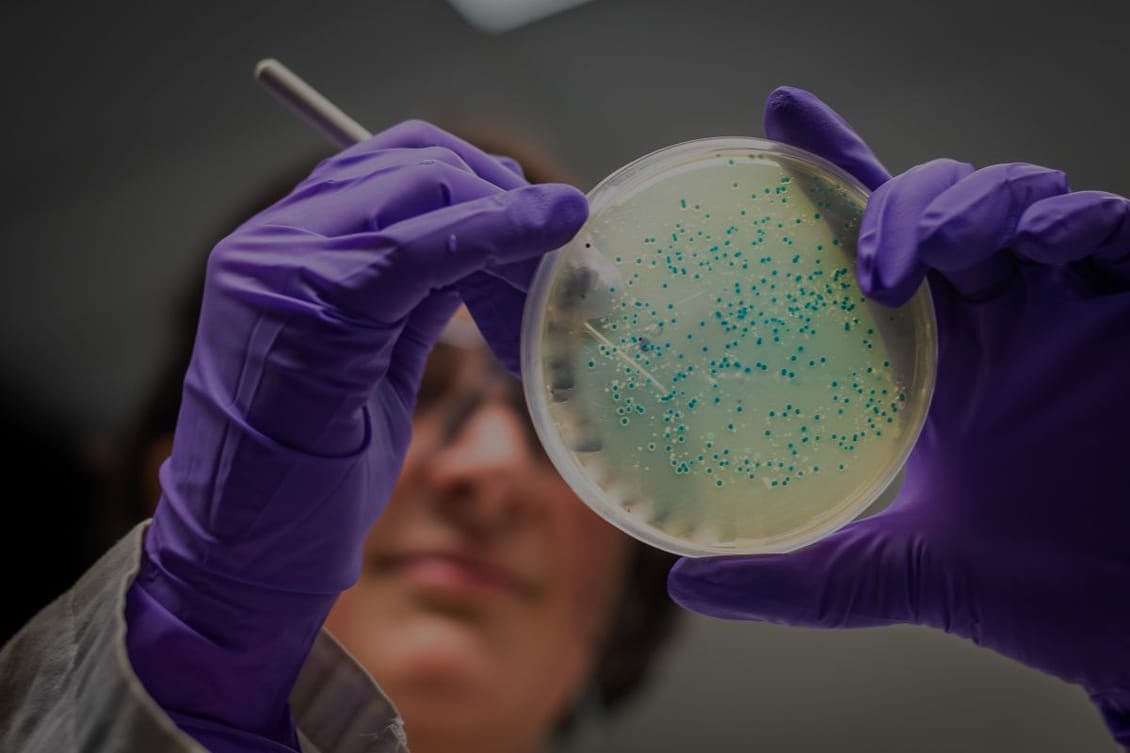
No matter what diet culture trends tell you, food is never just fuel. Every time we eat we are, in some way, shaping our identities and influencing our relationship with ourselves or with others.
Anthropological studies have shown, time and time again and in different cultures around the world, that eating together is a way to become a family. It strengthens bonds and makes you part of the same thing: you consume the same food, so you become entwined.
We’ve been thinking about this a lot since we listened to Steven Bartlett’s podcast episode featuring Dr. Tim Spector (the scientific co-founder at ZOE). In that podcast, Spector mentioned that couples with strong, loving relationships tend to have a more similar microbiome than couples who don’t have strong relationships.
It’s the collective name for the trillions of microorganisms that exist in any given environment. In this instance, we’re talking about the microbiome in your gut – which plays a critical role in processing the food you eat.
These microorganisms include fungi, bacteria, parasites and viruses. Some of them do crucially important work for our bodies, while some can harm us. Different microorganisms eat and thrive on different things – for example, some like sugar while others like plant protein; so the foods you consume have a knock-on effect on which microorganisms are able to survive and multiply in your gut.
A human being with a healthy microbiome tends to have a very diverse microbiome – they eat a varied diet, feed a wide range of microorganisms, and this helps to support overall good health.
Having a wide variety of health-supportive microorganisms in your gut comes with a lot of benefits.
The simplest way to diversify your gut microbiome is to diversify your diet. But there are other factors at play here, too – including stress, hormones, and…relationships.
The research says yes.
One 2019 study published in Nature found that relationships with others can influence the gut microbiome – and by extension, health outcomes. Interestingly, the study found that married couples had more similar gut microbiota than other relationships, and that they harbour “microbial communities of greater diversity and richness relative to those living alone.”
But perhaps even more interesting is that the study showed individuals who reported they were ‘very close’ to their spouse, as opposed to ‘somewhat close’, had more similar (to their spouse) and more diverse microbiomes.
Other studies about the sharing of microbes (on skin as well as in the gut) between household members suggest a number of possible reasons for this – from increased physical touch, to shared environmental conditions, and the sharing of the same or similar foods, drinks, and household chemicals (i.e. cleaning products).
When it comes to your microbiome, what you eat definitely matters. A lot.
But who you eat with matters too.
The people you eat with most often influence your gut health, and you influence theirs. So by eating together you really do grow together: you are who you eat with.
Take your seat at the InFlavour table, a government-backed and world-leading B2B food event by Tahaluf.
E-mail address SubmitWant to keep up to date with all our latest news and information? Enter your name below to be added to our mailing list.
E-mail address Submit